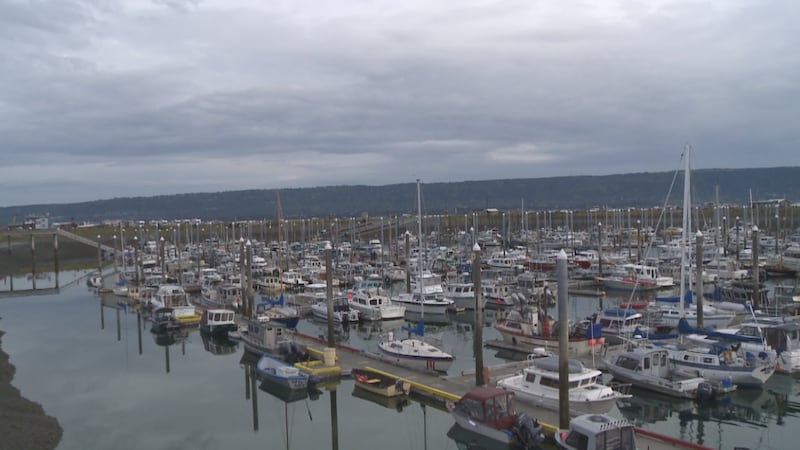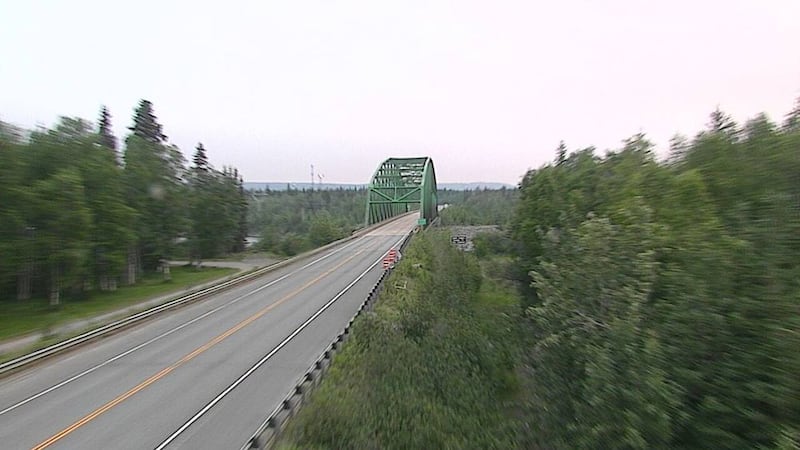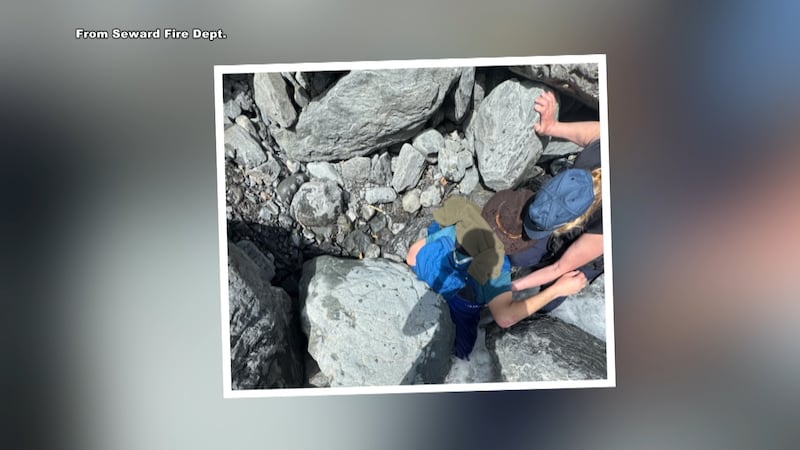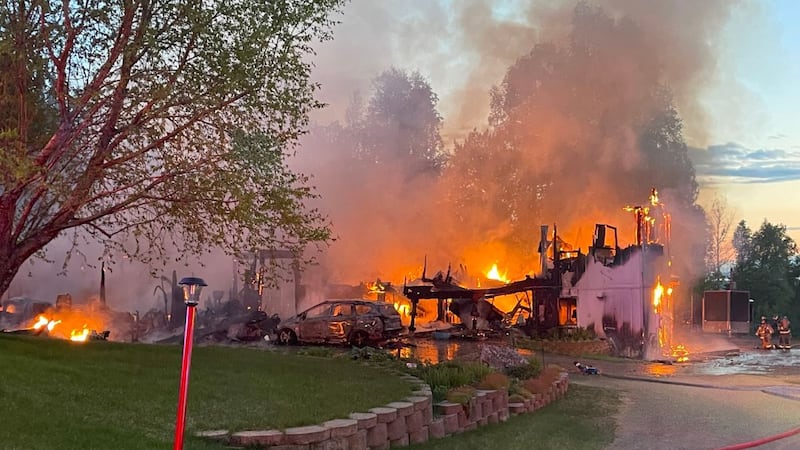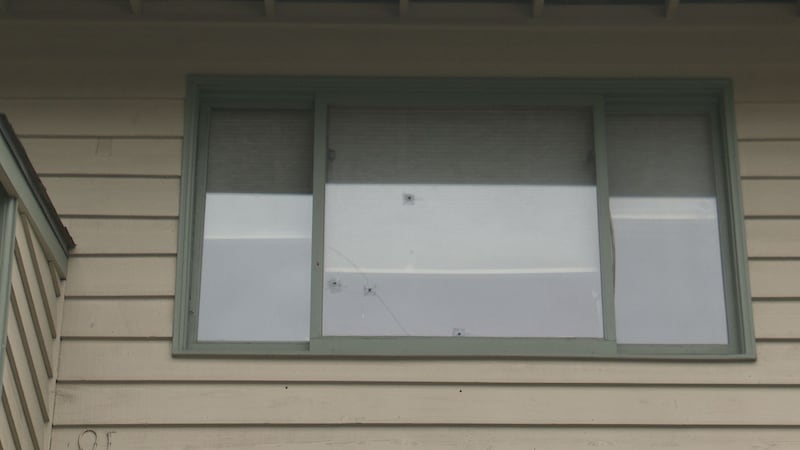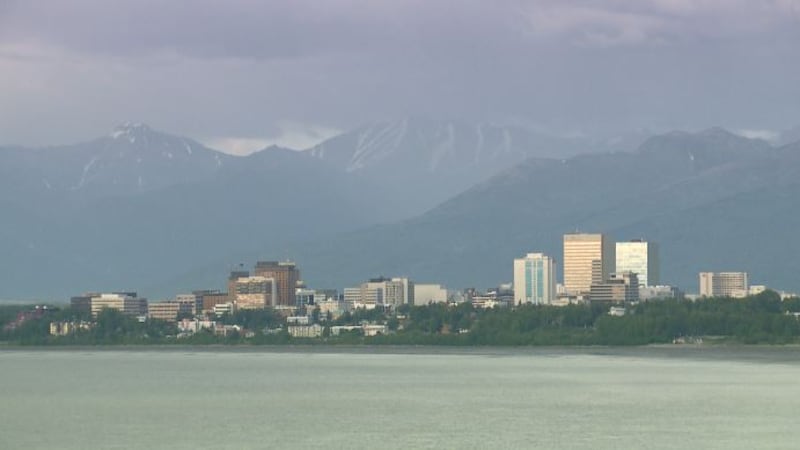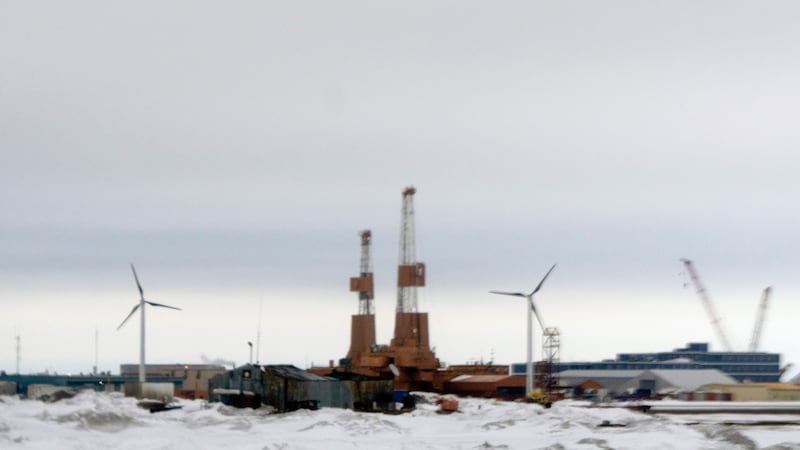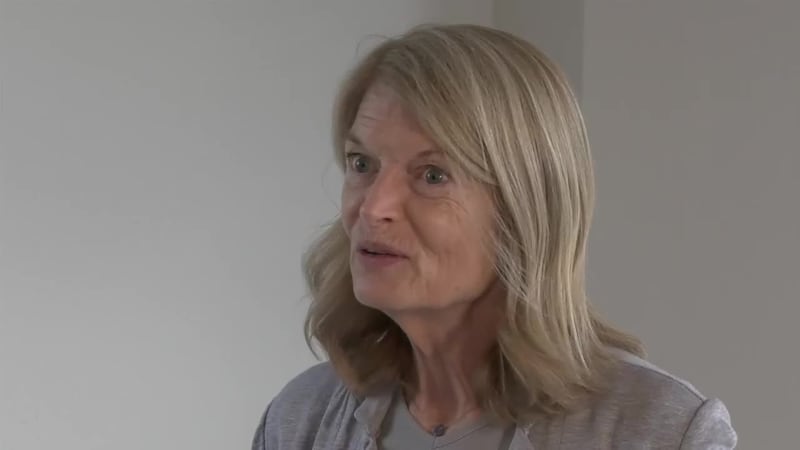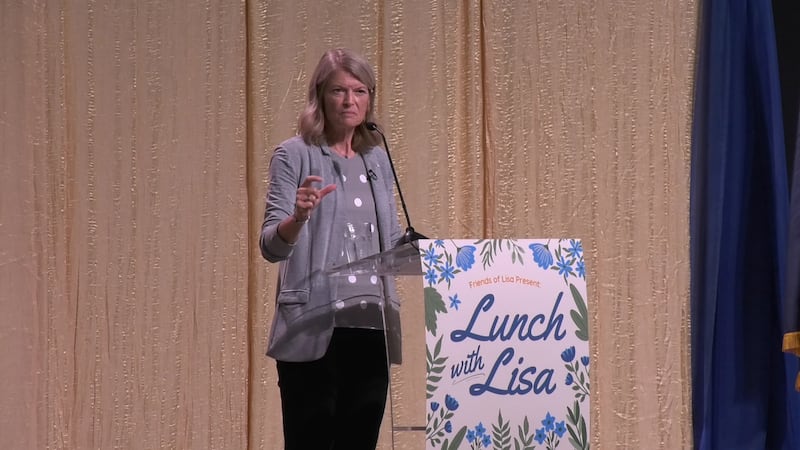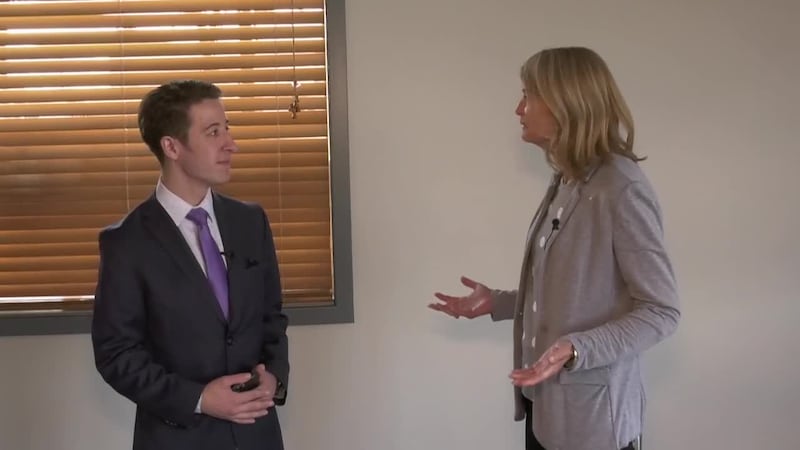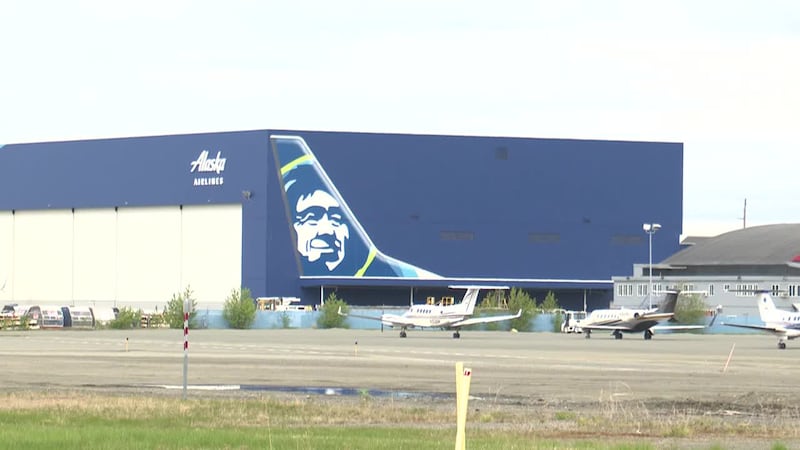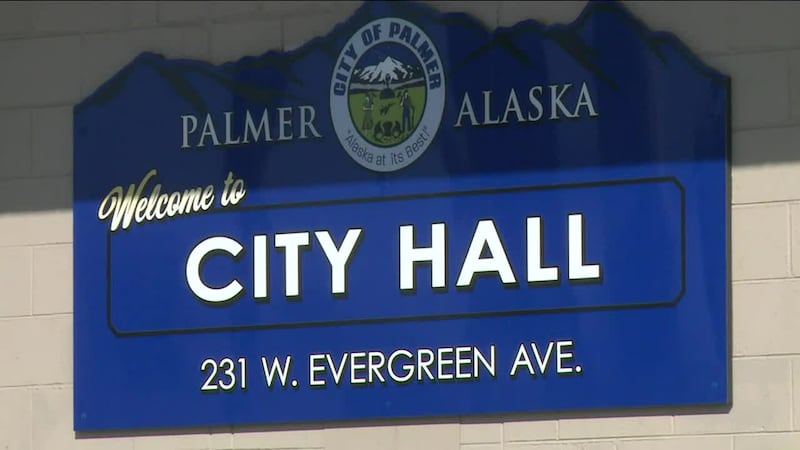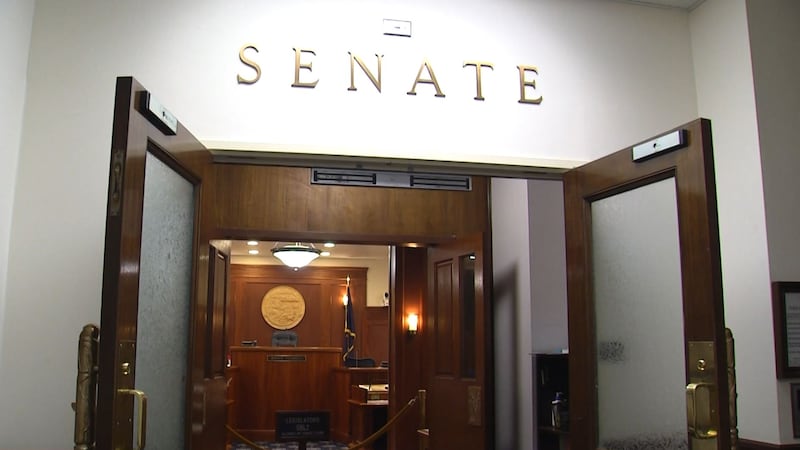Amid market roller coaster, oil prices stoke state lawmaker concerns over budget
Markets rallied after the announcement of a broad pause on tariffs last week
ANCHORAGE, Alaska (KTUU) - State lawmakers grappling with an already-massive budget deficit for both the current and upcoming budget years are now facing another layer to that huge challenge in plummeting oil prices, which have fallen about 15% overall since the Trump Administration’s announcement of sweeping tariffs last week.
As it stands now, oil and gas revenues — including related taxes, royalties, and the like — currently comprise more than 30% of the state’s budget. That’s far less than the vast majority that the revenues used to make up, but they still count for a chunk of the governor’s proposed $14.2 billion capital and operating budget for fiscal year 2026, which begins this coming July.
State of Alaska Department of Revenue data shows the 52-week high for Alaska North Slope West Coast oil at about $89 per barrel. This week marks a 52-week low, despite a slight increase seen in the past day, with the closing price at $65.08 per barrel on April 8, as indicated by preliminary DOR information.
Oil and gas analyst Larry Persily, who also authors a weekly newsletter on the two resources, suggested that Alaskans should be prepared for a rough ride ahead.
“Alaska North Slope crude, which is what our oil taxes are based on, is under $70,” he said. “It was $90 a year ago. It was $80 at the beginning of the year. It is not doing well; it is a sick patient.
“The crash in oil prices the last few days has been terrible for the state budget,” Persily added, pointing to its effects on state revenues, which directly affect key operations such as general services, the Permanent Fund dividend, and education funding.
“There’s just a lot less money on the table if this doesn’t reverse itself,” he said.
The most recent revenue forecast from the DOR, which was released last month, bases that revenue on oil prices of $74.48 per barrel for the current budget year and $68.00 per barrel for FY 26. A deficit of approximately $1.6 billion already exists in the budget for the coming year.
Rep. Louise Stutes, R-Kodiak – who is a member of the majority and the House Rules Committee chair – said in part during a press conference this week that, Alaska is “in extraordinary circumstances with the price of oil, and the stock market falling,” while Rep. Kevin McCabe, R-Big Lake, called right now “a hard time for Alaskans,” as he spoke generally about the budget deficit.
“Nobody is asking the question, ‘Who pays? How do we pay for this?‘” McCabe, a member of the House Minority, said. “And I think that most families in Alaska understand that there has to be a way to pay for something. We’re not the federal government. We can’t print money. So we have to live within our means.”
Like McCabe, Rep. Will Stapp, R-Fairbanks – who is also part of the House Minority – urged caution over looking to draw on a fund such as the state’s savings account, known as the Constitutional Budget Reserve, for the coming fiscal year. He cited troubling oil prices as a warning factor.
“We had the oil price basically fall below our spring revenue forecast already, and if you look outside, it’s not even spring yet, so that’s not looking so well,” he said. “Investment returns are poor at the moment. There’s always hope that they’ll rebound throughout the year.”
Stapp called the CBR balance “healthy” but urged caution over looking to draw from the CBR, and said there are “warning indicators, as far as where the state’s revenue streams are going.”
“Because, the way this movie is starting to play out,” he said, “you may need the majority of that balance to even fund the basics in the budget in FY27.”
Stapp also said that he doesn’t “see the revenue picture improving.”
“I think it’s very obvious where this train is about to go, and it’s not anywhere fun,” he later said. “It’s about to go off the rails, and, again, it’ll be because the revenues that the state relies on to fund services and to pay Permanent Fund dividends are all going down at the same time.”
Reps. Chuck Kopp, R-Anchorage, and Andy Josephson, D-Anchorage, also both pointed to oil prices as a challenge for the budget, though they expressed hope that compromise could be reached in the near future.
“You can’t duck the question of the PFD,” Kopp said. “It’s like rearranging the deck chairs on the Titanic when you’re going down.
“Oil prices are dropping fast,” he added later. “Not a great time to be talking about oil tax revenues, bills, either, when, their revenue picture is declining at a rapid rate. So, we are in a situation that is tough.“
Josephson referred to the budget and deficit as “a significant math problem.”
“We have 25% of the oil production we used to have, [and] falling prices,” he said in part. “This is our new reality.”
The overall sharp downturn in oil prices means ANS West Coast oil is also approaching a multi-year low as it approaches the $60 mark. Figures in the low-$60 range have been seen multiple times since 2021; the year prior, prices during the height of the pandemic tanked to critically low numbers, with the low that year sitting below $10 and the per-barrel price once coming in in the red that April.
“In terms of Alaskans’ life, falling oil prices mean the prices at the pump will go down,” Persily said. “So, if you’ve got a big truck or fleet of vehicles, your gasoline, diesel, should be cheaper in time. But what it really means to Alaska is that, if this crash in oil prices extends throughout the year, the state’s out a few hundred million dollars of oil tax and royalties.”
Notably, oil prices are known to be especially volatile, particularly because of their sensitivity to economic disturbances and geopolitical unrest. The U.S. Energy Administration also points to inelasticity as a key factor in that volatility, given the low responsiveness of supply and demand in the short term.
“I think this is going to be a very painful spring and summer,” Persily said, “for anyone who’s counting on oil revenues to plump up the state treasury.”
House lawmakers have repeatedly said that they intend to forward their budget in the coming days and expect to exchange budget bills with the Senate as early as next week.
See a spelling or grammatical error? Report it to web@ktuu.com
Copyright 2025 KTUU. All rights reserved.
